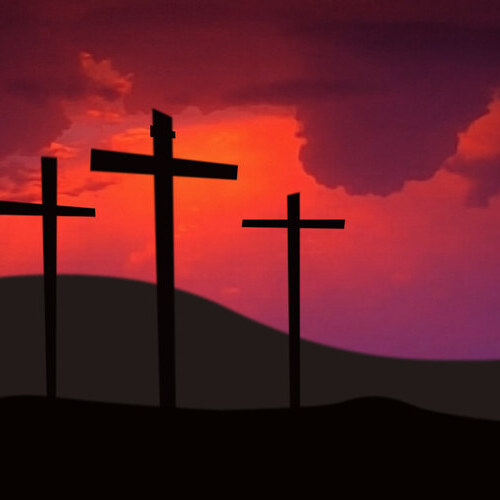This season is a time to reflect on Jesus’ work on the cross, His death and His resurrection to life again. There are a lot of details recorded for us by the gospel writers about Jesus’ last hours leading up to the cross and it can be easy for us to skip through and miss the significance of them. One of these details are the last words spoken by Jesus before He died – “It is finished”. In the Greek this was actually only ONE word – “Tetelestai”. This last declaration of Jesus records a detail with much significance for our faith.
The meaning behind this last word is “to be completed, fulfilled, to accomplish, or bring to a close”. But this isn’t just a simple statement of Jesus telling the people He was about to die. ALL things that Jesus would endure were predicted in detail by the Old Testament prophets as well as by Jesus himself. Luke 18:31 records, “Then he took unto him the twelve, and said unto them, Behold, we go up to Jerusalem, and all things that are written by the prophets concerning the Son of man shall be accomplished.” That word "accomplished" is the same word in the Greek – “Tetelestai”. Jesus came with a purpose to fulfill and all of the events of his last hours on earth were recorded with exact precision long before that time. Jesus had come to accomplish each one of them through His life and sacrificial death. But, as we examine it further, we can see that Jesus was telling us more than He was simply fulfilling prophecy.
Matthew Henry, an English minister from the early 1700’s, put it this way, “It is finished; that is, the counsels of the Father concerning his sufferings were now fulfilled. It is finished; all the types and prophecies of the Old Testament, which pointed at the sufferings of the Messiah, were accomplished. It is finished; the ceremonial law is abolished; the substance is now come, and all the shadows are done away. It is finished; an end is made of transgression by bringing in an everlasting righteousness. His sufferings were now finished, both those of his soul, and those of his body. It is finished; the work of man's redemption and salvation is now completed.”
There are many facets to the work that Jesus “finished” that day on the cross, but it has on-going significance as well. The Greek verb tense used in that word means that it is not only a completed work but also an on-going work. Wrapped up into that single word is the idea that Christ’s work “will continue to be finished”. It is a statement about the on-going efficacy of the salvation in our lives that is found by faith in Jesus Christ.
If you have never placed your faith in Jesus Christ, think of it this way –It is your sin that is keeping you from a relationship with God. This sin requires the punishment of death (Romans 6:23). Jesus suffered and died for you and declares “tetelestai” to your sin. You can never make such a declaration for yourself. You can never do enough good works or bear enough punishment to make payment for your own sin. You can never do enough to declare “tetelestai” before God. From the cross, Jesus declared that for you and you must put your faith in this promise to be saved. If you would like to know how to be saved, please contact me.
For those that know Christ, there is another use of the word that we find in Scripture. In 2 Timothy 4:7, Paul says, “I have fought a good fight, I have finished my course, I have kept the faith”. That word “finished” is from the same word that Jesus cried out from the cross. As Christians, we continue to fight against the sin in our own lives and in the world around us. We must continue to be vigilant to feed our faith through prayer, faithful living, and reading Scripture. We have been placed in God’s service and have a purpose to fulfill as well – to faithfully grow in grace and represent our Savior to the world around us. At the end of our lives, may each of us also be able to declare “tetelestai” about our service for the Lord.

